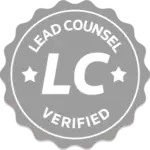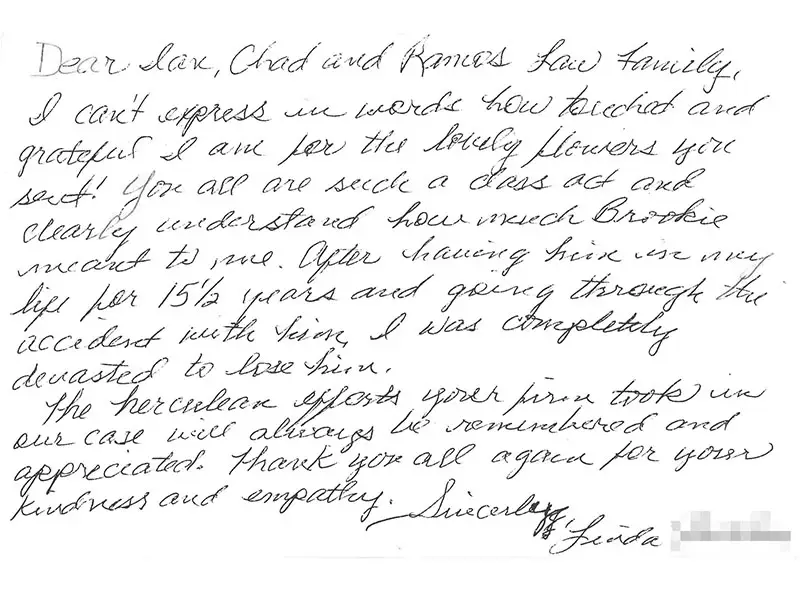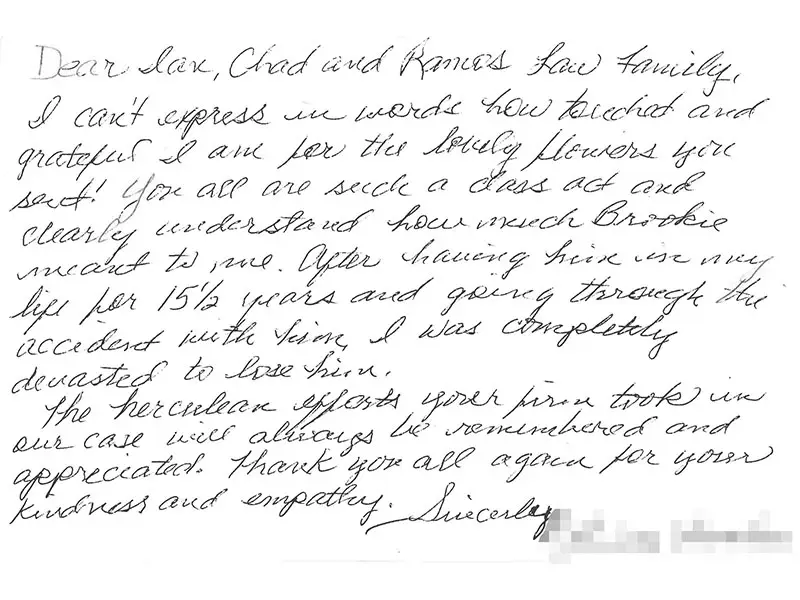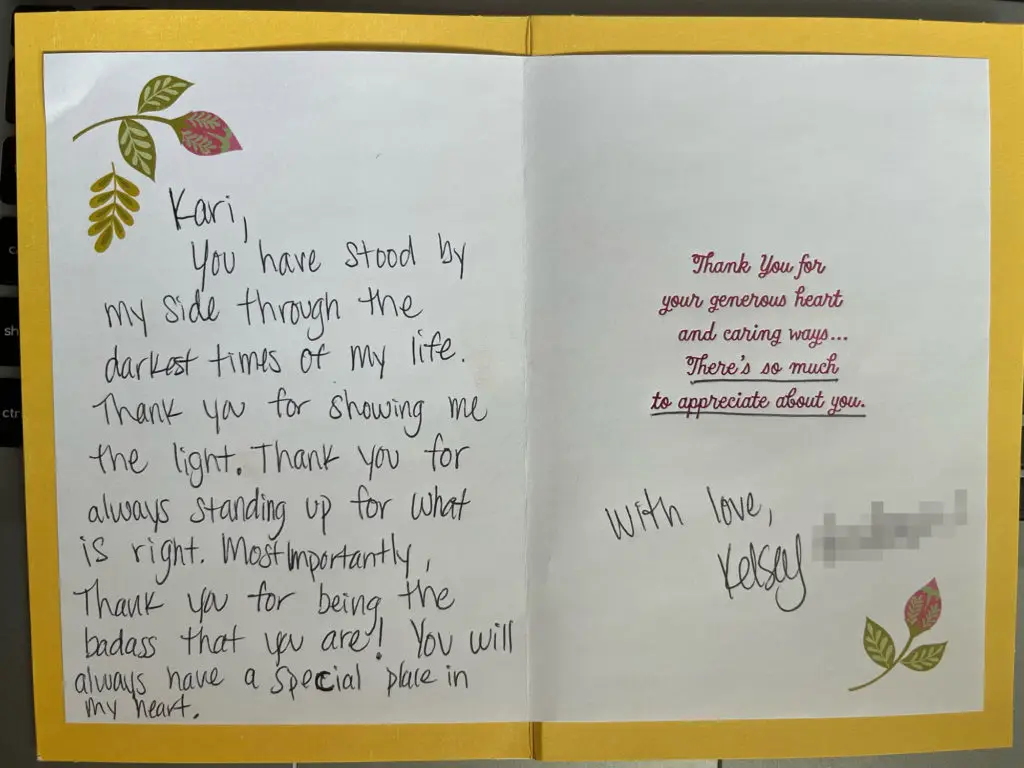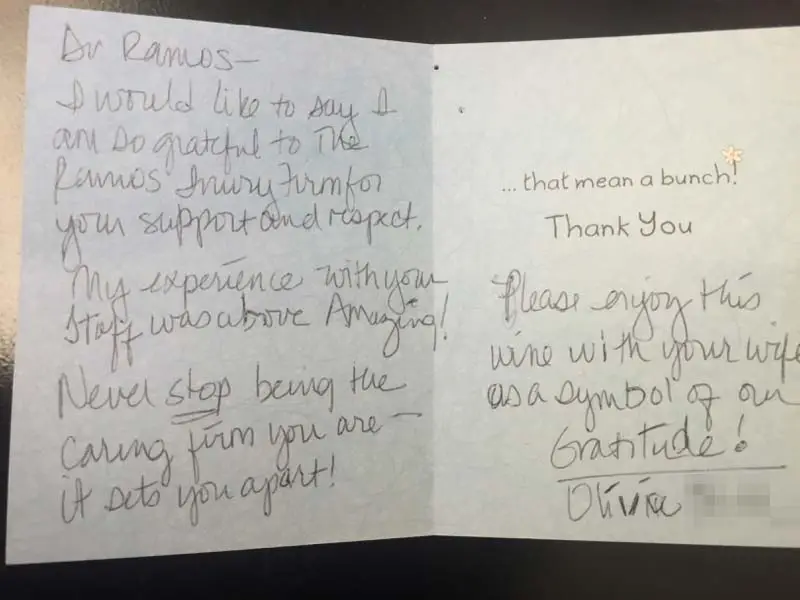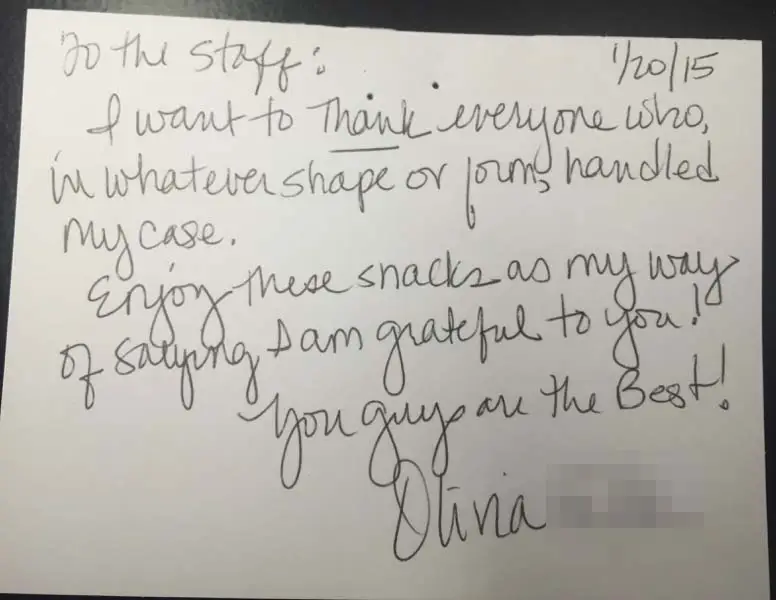Denver
(303) 214-7927Address: 1512 Larimer St Ste 600, Denver, CO 80202 Call Any Time – 24/7
At Ramos Law, we leverage our unique blend of medical and legal expertise to fight for your rights. Our team, led by Dr. Joseph Ramos, a board-certified ER physician and seasoned attorney, understands the intricacies of both personal injury and the law. We’ll meticulously analyze your case, assess the full extent of your injuries, and build a compelling argument to secure the compensation you deserve.
Tell Us About Your Case
We Understand Your Injuries Better Than Anyone Doctor + Lawyer
In 2023, Denver County recorded 15,190 traffic accidents, according to data from the Colorado Department of Transportation (CDOT). These incidents resulted in 75 fatalities, underscoring the critical need for ongoing traffic safety improvements. The most common type was rear-end collisions, which accounted for 4,500 crashes, representing nearly 30% of all auto accidents.
Injury levels in these crashes involve moderate harm, such as broken bones or significant lacerations, to more severe trauma, such as spinal injuries or internal bleeding. If you or a loved one sustains injuries in an auto accident at no fault of your own, it is crucial to contact Ramos Law. We specialize in ensuring you receive the treatment and compensation you deserve.
Tell Us About Your Case
Accident Checklist PDF
The Denver car accident lawyers at Ramos Law recommend taking the following steps if you have been involved in a car accident in Colorado or Denver.
Download PDFTable of Contents Auto Accidents
- Immediate Steps After an Accident
- Should I Get an Attorney After an Auto Accident?
- Common Causes of Accidents in Denver
- How Long Can Auto Accident Settlements Take?
- Factors That Affect the Outcome of an Auto Accident Case
- Steps to Take After You're Hit & Injured in an Auto Accident in Colorado
- Related Readings
- FAQs
Immediate Steps After an Accident
Insurance companies will look for any angle to avoid paying out auto accident claims, so what you do directly after a crash can affect your chances of securing adequate compensation later in a personal injury claim.
Report the Accident
Call 911 or local law enforcement immediately and have them report to the accident scene. Colorado law requires you to file a report for any accident that results in injury or property damage. Additionally, a police report is an invaluable piece of evidence since it documents the crash’s details and circumstances. It will help establish negligence and strengthen your case.
Gather Evidence
The more evidence you can gather about the accident, the better. If you’re not in immediate danger, try to obtain the contact details of any witnesses and parties involved and take photos of all vehicles involved, as well as pictures detailing the scene.
Write down everything that happened as soon as possible before you forget important details. Most auto accident lawyers will have investigative experts on hand to assist with evidence gathering and obtaining witness statements to help build a solid claim before you file a lawsuit.
Seek Medical Attention
It’s essential to seek medical attention after a crash, even if you don’t have apparent injuries. Adrenaline and shock can mask internal injuries, and even the mildest injury may be more severe than you initially believed.
As part of an auto accident claim, you will need to prove that your injuries and medical bills were due to the crash. Seeking immediate medical attention helps draw a conclusive line between your injuries and the accident. Make sure to document all your injuries — keeping a diary or journal day-by-day is helpful — and keep your medical bills in a safe place to provide evidence supporting your claim.
Find a Lawyer
If you’ve been injured in an auto accident, it is in your best interest to hire a lawyer for expert guidance. Insurance companies are notorious for not wanting to pay out settlements, especially in serious personal injury cases.
Please remember that even your own insurance company won’t serve your interests if it doesn’t want to pay for injuries you sustained that an uninsured or underinsured driver caused. Be careful about confiding in or entrusting information to your insurance agent.
Before you speak to an insurance agent or assessor, contact the Colorado auto accident lawyers at Ramos Law to ensure that your rights are protected. Don’t sign or agree to anything before consulting with an attorney, as doing so can significantly weaken your case. The sooner you hire a lawyer, the sooner you can focus on recovering and getting back to your life.
If you’re worried about not being able to afford a lawyer, rest assured. Our personal injury attorneys will not charge you anything out of pocket for their services.
The initial consultation is free. If we agree to take your case, our goal is to win it—and we will not get paid until we do! That means our compensation will come from the funds the insurance company or court awards to you. Yes, you can afford us.
Should I Get an Attorney After an Auto Accident?
Absolutely. The process of dealing with a serious personal injury claim can be challenging to navigate, especially if you don’t have legal experience. If you suffered injuries from an auto accident, you might think that your insurance will handle the personal injury or other damage claims. They might, but there are insurance companies and adjusters who will look for any angle to avoid paying accident claims, and you need an experienced auto accident attorney in Denver to help build a strong case that protects your rights.
Dealing with injuries and emotional trauma is already challenging enough without fighting insurance agents and filing paperwork. At Ramos Law, we’ve helped auto accident victims navigate the murky waters of personal injury law to secure compensation for their damages.
If you’ve suffered injuries during an auto crash in the past three years, you may be entitled to compensation. However, you’ll need to act fast since the Colorado statute of limitations is three years from the injury date. Any claims past this date aren’t eligible for compensation, and a judge will throw them out of court.
If you’ve been in a crash, contact the Denver auto accident lawyers at Ramos Law to learn about your options. Our personal injury attorneys in Denver offer free consultations, and we’ll help take care of you and your family during this difficult time. Back to top.
Common Causes of Accidents in Denver
Every personal injury claim requires proving that the at-fault party neglected their “duty of care,” which led to the accident. Our auto accident attorneys are familiar with the various causes of traffic crashes and their connection to the at-fault person. Some of the most common causes of auto accidents include:
- Speeding
- Failure to obey traffic signals
- Illegal lane departures
- Drunk driving or driving under the influence of drugs
- Sleep-deprived driving
- Distracted driving (including text messaging)
How Long Can Auto Accident Settlements Take?
The timeline for an auto accident settlement in Colorado varies based on case complexity. For severe injury cases, settlements can take up to a year or more as parties wait for maximum medical improvement and review all relevant information.
Non-injury accidents typically resolve in four to six weeks, depending on insurance company cooperation and fault determination. If a settlement cannot be reached, the case may go to court, potentially taking several months to a year. Our experienced Denver auto accident attorneys aim to secure your compensation swiftly and provide guidance throughout the process. Back to top.
Factors That Affect the Outcome of an Auto Accident Case
The speed, settlement amount, and final determination of an auto accident lawsuit can vary based on multiple factors, including injury extent, insurance, and liability.
Injury Extent
The extent of injuries in an auto accident lawsuit can affect the outcome by influencing the compensation amount, the duration of the case, the need for extensive documentation, and the consideration of long-term consequences. Severe injuries often lead to higher compensation due to increased medical expenses and long-term care needs. Such cases take longer to settle as it’s essential to wait until maximum medical improvement is reached.
Current & Future Medical Expenses
Current and future medical expenses may also play a critical role. Current medical expenses include immediate costs such as emergency care, hospital stays, surgeries, medications, and rehabilitation.
Future medical expenses account for ongoing treatment, long-term care, follow-up surgeries, and therapies required due to the accident. Accurate estimation of these costs is essential to ensure that the injured party is fully compensated for their medical needs over time.
Economic Damages
Economic damages cover lost income from the inability to work during recovery, reduced earning capacity due to long-term or permanent disabilities, and the loss of future wages if the victim can’t return to their previous employment. Thorough documentation, including pay stubs, tax returns, and expert testimony on potential future earnings, is necessary to substantiate these claims.
Mental & Emotional Trauma
These non-economic damages account for the psychological impact of the accident, including conditions like PTSD, anxiety, depression, and reduced quality of life. Documenting emotional trauma requires comprehensive medical and psychological evaluations, which provide evidence of the distress and its effects on the victim's daily life and well-being.
The severity and long-term nature of the emotional trauma influence the compensation amount, often leading to more complex and lengthy negotiations or trials, as these damages are subjective and more challenging to quantify compared to economic losses.
Type & Size of the Vehicles Involved
Larger vehicles, such as trucks or SUVs, tend to cause substantial damage and more severe injuries to occupants of smaller vehicles, potentially leading to higher compensation claims for medical expenses, property damage, and pain and suffering. Additionally, commercial vehicles may involve complex liability issues, including employer responsibility and higher insurance coverage limits, which can affect settlement negotiations and legal strategies.
Insurance Types & Limits
The at-fault driver's liability insurance coverage dictates the maximum amount that can be paid for medical expenses, property damage, and other losses. If the policy limits are low, it may not cover the full extent of the victim's damages, potentially leading to out-of-pocket expenses or the need to pursue additional compensation through underinsured motorist coverage or a personal lawsuit. Different types of insurance, such as comprehensive, collision, or personal injury protection (PIP), also play roles in covering specific damages regardless of fault.
Fault & Liability
Fault and liability significantly affect the outcome of an accident lawsuit in Colorado, as the state follows a modified comparative negligence rule. This statute outlines that the compensation a victim can receive is reduced by the percentage of fault in the accident.
If a party is found to be 50% or more at fault, they can’t recover any damages. Therefore, establishing clear liability is crucial; the less fault attributed to the victim, the higher their potential compensation. Accurate fault determination involves thorough investigation, evidence collection, and often expert testimony.
Legal Representation Quality
Experienced and skilled auto accident attorneys—such as those at Ramos Law—are better equipped to navigate the complexities of the legal system. High-quality legal representation ensures thorough investigation, effective evidence gathering, and the ability to present a compelling case.
Competent lawyers can accurately assess the value of the claim, negotiate effectively with insurance companies, and advocate persuasively in court if necessary. They’re adept at countering defense strategies and minimizing the client's liability while maximizing compensation for damages. Thus, the expertise and dedication of your legal team can significantly influence the settlement amount, the duration of the case, and overall success in securing just compensation. Back to top.
Steps to Take After You’re Hit & Injured in an Auto Accident in Colorado
- Seek Medical Attention: Your health and safety are paramount. If you’re injured, seek medical attention immediately, even if you don’t feel seriously hurt. Some injuries may not be immediately apparent.
- Report the Accident:
- Call 911 if anyone is injured, there is significant property damage, or the other party is unable to exchange information.
- Cooperate with the police and provide them with accurate information about the accident.
- Obtain a copy of the police report once it’s available.
- Gather Information: If possible, collect information at the accident scene or afterward. This includes:
- The other driver’s name, contact information, insurance details, and license plate number.
- Contact information of any witnesses.
- Photos of the accident scene, damage to vehicles, and your injuries.
- Contact Your Insurance Company: Even if you weren’t at fault in the accident, notify your insurance company.
- Consult with a Personal Injury Attorney: Colorado is an at-fault state, meaning the driver responsible for the accident is liable for damages. An experienced personal injury attorney can help you with the following:
- Understand your rights and legal options.
- Deal with the insurance companies involved.
- Gather evidence and build a strong case.
- Negotiate a fair settlement or represent you in court if necessary.
- File a Lawsuit: In Colorado, you generally have three years from the date of the accident to file a personal injury lawsuit. Your attorney can help you navigate this process.
Important points to remember:
- Colorado is an at-fault state: You can seek compensation from the at-fault driver’s insurance company, even if they are from out of state.
- Statute of Limitations: Don’t delay seeking legal advice or filing a lawsuit. The statute of limitations can impact your ability to recover damages.
- Evidence is crucial: The more evidence you can gather, the stronger your case will be.
- An attorney can help: A personal injury attorney can guide you through the legal process and ensure your rights are protected.
Remember, every case is unique. Consulting with an attorney is the best way to understand your specific situation and the steps you need to take to recover compensation for your injuries. Back to top.
Settlement Wins
FAQs
At Ramos Law, we understand that navigating insurance claims can be challenging. To help you maximize your compensation from your insurance company in Denver, we recommend the following steps:
- Review Your Policy: Start by thoroughly understanding your insurance policy. Know your coverage limits, deductibles, and the claims process. This knowledge is crucial for ensuring you receive all the benefits you’re entitled to.
- Document Everything: Keep meticulous records of every interaction with your insurance company. Document your damages, medical treatments, and any related expenses with photos and detailed notes. This documentation will support your claim and strengthen your case.
- File Your Claim Promptly: Report the incident to your insurance company immediately. Timely reporting is essential, as delays can complicate your claim or result in reduced compensation.
- Provide Complete Information: Ensure that all required documents and information are submitted accurately and promptly. Incomplete or incorrect information can lead to delays or denials.
- Negotiate: If the insurance company’s initial offer doesn’t cover all your damages, don’t accept it right away. Insurance companies often start with lower offers, so be prepared to negotiate for a fair settlement.
- Seek Professional Assistance: If you encounter difficulties or if the insurance company is uncooperative, consult with our Denver auto accident lawyers. We’ll guide you through the claims process, negotiate on your behalf, and work to secure the compensation you deserve.
Gather as much evidence as possible, including:
- Contact information: Names, addresses, and phone numbers of all parties involved.
- Insurance details: Policy numbers and contact information for all involved parties.
- Photos: Take pictures of the accident scene, vehicle damage, and injuries.
- Witness information: Names and contact details of any witnesses.
- Medical records: Documentation of all injuries and treatments.
This information will be crucial for building a solid case and pursuing fair compensation.
Potential compensation for an auto accident can include:
- Medical expenses: Past, present, and future medical costs.
- Lost wages: Income lost due to injuries.
- Property damage: Costs to repair or replace your vehicle.
- Pain and suffering: Compensation for physical and emotional distress.
- Other damages: Depending on the case, other damages could include loss of earning capacity, wrongful death, and more.
It’s generally advisable to avoid contacting the other driver’s insurance company directly. Their primary goal is to minimize payouts, and any statements you make could be used against you. It’s better to let your insurance company or an attorney handle communication with the other party’s insurer.
In Denver, CO, you generally have three years from the date of your auto accident to file a lawsuit.
There are specific statutes of limitations for motor vehicle accidents in Colorado, which differ from the standard two-year limit for most personal injury cases. However, it’s essential to understand that there are exceptions to this rule that could affect your specific case.
Exceptions & Important Considerations
- Wrongful Death: If the accident resulted in a fatality, the statute of limitations for filing a wrongful death lawsuit is generally two years from the date of death.
- Discovery Rule: In certain situations, the statute of limitations may be extended if the injury isn’t immediately apparent. The “discovery rule” allows you to file a claim within two years of discovering the injury, as long as it was reasonable not to have discovered it sooner.
- Minors: If the injured person is a minor, the statute of limitations may be tolled (paused) until they reach the age of 18.
- Government Liability: Cases involving government entities have a shorter statute of limitations, usually 182 days.
Consult an Attorney as Soon as Possible
Due to these potential exceptions and the complexities of personal injury law, it’s crucial to consult with a qualified attorney as soon as possible after your accident. A lawyer can assess your specific situation, identify any applicable exceptions, and ensure you file your lawsuit within the appropriate timeframe.
Remember, the statute of limitations is a strict deadline. If you miss it, you could lose your right to seek compensation for your injuries and other damages.
If the at-fault driver in an accident doesn’t have insurance in Colorado, you still have options. First, check if your insurance covers the damages. MedPay can help with medical expenses, and collision coverage can assist with vehicle repairs. If you have Uninsured/Underinsured Motorist (UM/UIM) coverage, it can compensate for medical costs, pain, suffering, and lost income.
If these options don’t cover all your losses, you may consider filing a personal injury lawsuit against the uninsured driver, though it depends on their financial assets. An auto accident attorney can provide guidance on navigating insurance claims and legal options.
Colorado is an “at-fault” state for car accidents, meaning that the driver who caused the accident is responsible for paying damages, even if the driver responsible is a resident of another state that is a “no-fault” jurisdiction. You can file a claim against the at-fault driver’s insurance or pursue a personal injury lawsuit.
In Colorado, all drivers are required to have auto insurance to cover them in case they cause an accident. The minimum insurance amounts required are:
- $25,000 per person for bodily injury,
- $50,000 total per accident for bodily injury, and
- $15,000 for property damage.
Colorado follows the modified comparative negligence legal theory. This means that if you are less than 50% responsible for the accident, you can still seek compensation for your injuries. However, the amount of damages you can receive will be reduced by the percentage of your responsibility. For example, if you are found to be 20% at fault, your compensation will be reduced by 20%.
Need Advice From Expert Lawyers?
Testimonials
Related Posts

Fatal Rollover Crash on I-25 in Colorado Springs
A fatal October 26th rollover crash on I-25 in Colorado Springs involved a high-speed collision with a heavy equipment service truck, killing one and causing

Thornton Crash Leaves Four Dead, Including Two Children
4 members of a family died in a fiery crash in Thornton, Colorado, on October 27th, 2024. Their SUV was rear-ended by a speeding car





